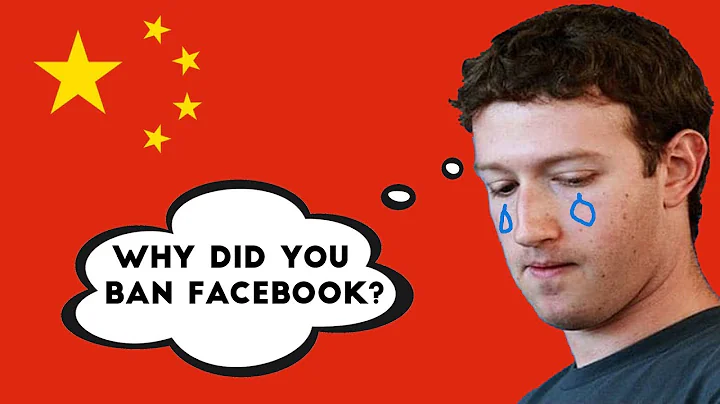
Text | Sohu Technology Huangyang
Editor | Sohu Technology Wang Yisu
Xiaowen is an employee of an Internet company. She returned to Beijing to resume work on February 15, but suffered layoffs from the company. When she returned with office supplies In the long-term rental apartment she rented years ago, a message from the housekeeper made her fall into despair again. The housekeeper told her that the landlord was going to take back the house and she needed to complete the move within 7 days.
"Now people have to take their temperature when entering and exiting the community. How can I move?" Xiaowen's question did not get much explanation from the housekeeper. With the help of her neighbors, she contacted the landlord. The landlord said that he was unwilling to take over the house during the special period and terminated the contract. The reason is that long-term rental apartments cannot pay rent as scheduled. The situation of
Xiaowen is not an isolated case. During the epidemic, many tenants received "moving reminders" from long-term rental apartments, but the owners received unilateral notices such as "rent extension", "deposit exemption or contract termination".
Public opinion is gradually expanding. Information such as "Danke Apartment wants landlords to waive rent but does not exempt tenants from rent", "Qingke Apartment cannot pay rent", "Ziru Apartment Prices Increase" and other information have been pushed to the forefront of the trend. . Is there any legal support for the "abnormal measures" taken by long-term rental apartment owners? Why are they "confusing themselves" at the cusp of the storm?
Can the "epidemic impact" excuse long-term rental apartments?
Under the epidemic, chaos occurs frequently in long-term rental apartments. Leading companies including Qingke , Danke, Ziroom, etc. have all been exposed for arrears in rent arrears, price increases, and requiring tenants to move. Notices sent by
long-term rental apartments to owners and users often contain words related to "epidemic impact." Can the "epidemic impact" really be a reason for long-term rental apartments to default on rent and require residents to move out? Sohu Technology interviewed several legal professionals.
professor at China University of Political Science and Law Zhu Wei said that the impact of the epidemic can be regarded as force majeure in special areas. Force majeure is a legal reason for the termination of a contract. The area and time period of the first-level response can be implemented as force majeure, but there are several situations where it cannot be done: " One is the contract after the outbreak, because the existence of the epidemic was clearly known at this time, and the contract cannot be terminated; the other is discrimination, such as asking someone to cancel the lease because he is from Hubei, which is absolutely unacceptable."
Yu Heng. Fund lawyer Wu Tong said that only when the sub-district office requires tenants to evacuate can they refer to force majeure and ask tenants to move: "The epidemic is a force majeure, but there are strict identification standards for force majeure. The parties involved can only enjoy the terms because they are affected by force majeure, so the second landlord requires the tenants to move Relocation can only be requested if the tenant fails to pay rent. If the tenant has not breached the contract, unless the epidemic has affected the entire building and the neighborhood office requires every tenant to evacuate, in this case, the tenant can be required to move based on force majeure. "
Liu Jun, a lawyer at Beijing Yixing Law Firm, pointed out that if the tenant does not have symptoms such as fever and cough, the lessor's unauthorized termination of the contract will constitute a breach of contract: "If the tenant does not return to Beijing from the epidemic area and does not have fever, cough or other related symptoms. , has not been in contact with infected or suspected patients, and there is no legal termination situation in Article 94 of the Contract Law. If the lessor terminates the contract without authorization and prohibits the tenant from moving in, it will constitute a breach of contract. If the tenant returns to Beijing from the epidemic area, And there are fever, cough and other related symptoms, or the tenant has been exposed to infected or suspected patients. In this case, it should be regarded as a 'change of circumstances', and continuing to perform the lease contract will cause serious damage to the landlord or others' rights to health and life. Threat, the landlord also faces health and safety risks when renting the house. Continuing to perform the lease contract is obviously unfair to the landlord and will pose a major threat to public health and safety. The basis of the contract is lost, and the landlord has the right to exercise the right to terminate the contract. "
Beijing Yue Cheng Lawyer. Yue Qishan, a lawyer at the firm, pointed out that under extreme circumstances, the tenant cannot be asked to check out: "For example, if the contract expires and the tenant is not allowed to leave due to home quarantine, then this is force majeure and the tenant cannot be asked to check out immediately."
Obviously, long-term rental apartments use the epidemic as an excuse to require tenants to move in areas where the first-level response has been lifted. This is not recognized by the law. So, for the owners, they should exempt the long-term rental apartments from rent.
Lawyer Wu Tong said that it can be negotiated, but there is no legal requirement to reduce rent: “Even if the second landlord cannot pay the money, the owner is not obliged to reduce the rent. However, because of the epidemic, the second landlord’s company has been affected. You can negotiate with the landlord, but there is no mandatory legal requirement to reduce rent. "
Lawyer Yue Qishan said that price reductions and exemptions are the rights of the landlord, not the business that must be performed: "Long-term rental apartments cannot ask the landlord to reduce or reduce the rent because the house cannot be rented out due to the impact of the epidemic, because not being able to rent out the house is a market risk. . "
Professor Zhu Wei said that the Ministry of Housing and Urban-Rural Development in Beijing and other places has issued regulations to adjust rents. This is supported within the scope of the law. Where there are no regulations, the regulations can be compared and the two parties can negotiate. Solved.
Professor Zhu Wei emphasized the principle of fairness in contract law: “The principle of fairness is an issue that must be discussed. The principle of fairness is rarely mentioned, but it is also very important, because this epidemic is something that neither party to the contract wants to see. , according to the principle of fairness, both parties to the contract should bear the risk together, especially for commercial residents, because it is a commercial behavior in itself, so this risk should be shared.
The financial pressure behind the chaos
In the current epidemic, long-term rental apartments have not only intensified the conflict between owners and tenants, causing both parties to defend their rights, but also caused trouble and fell into the " rental loan " regulatory quagmire.
Recently, As many owners of Danke Apartments in Shenzhen initiated rights protection, the Political and Legal Committee of the Shenzhen Municipal Committee of the Communist Party of China issued a document to the Shenzhen Local Financial Supervision Bureau and the Shenzhen Banking and Insurance Regulatory Bureau, requesting that the investigation of Danke Apartments be carried out as soon as possible to fully understand the Danke Apartments and other housing rentals in Shenzhen. The company's "rent loan" situation.
Rent loan means that the company borrows rent from a third-party financial institution in the name of the tenant. In this way, the tenant can repay the loan in installments, and the company can also get the rent in advance for operations and operations. Expansion. Although "rental loans" can bring the short-term convenience of "one deposit and one payment" to tenants, once the long-term rental apartment has cash flow problems and is unable to pay the rent to the owner, the tenant will be forced to withdraw from the lease. Previously, Hangzhou Ding. Many long-term rental apartments such as Jia Apartment and Shanghai Ai Apartment went bankrupt due to "rental loans"
At the end of 2019, six departments including the Ministry of Housing and Urban-Rural Development jointly issued the "Opinions on Rectifying and Regulating the Order of the Housing Rental Market", which clearly requires the amount of housing rental loans. The proportion shall not exceed 30%, and any excess proportion shall be adjusted in place before the end of 2022.
According to the latest available data, Qingke Apartment rental loans account for 65.4%, Danke Apartment rental loans account for 67.9%, and Ziru Apartment rental loans account for 65.4%. The proportion is less than 25%.
What is puzzling is that while other industries, such as online ride-hailing, online hotels, and fresh food delivery, are trying to compete for users with service quality during the epidemic, long-term rental apartments are doing the opposite. As it goes, what is the unspeakable secret behind this?
Mr. Wu, an industry insider, analyzed that the year after the year will be the peak period for renting. According to past experience, long-term rental apartments will receive a large amount of housing from the owners before the year and prepare to rent it out after the year. Affected by the epidemic, the property cannot be rented out in time, which is a huge loss for long-term rental apartments. Mr. Chen, an analyst at
Securities, said that unlike the asset-heavy long-term rental apartments where he bought the property, "Second, Asset-light long-term rental apartments operated by the "landlord" model are often short of funds. During the epidemic, they may also face the problem of investors withdrawing their capital, and there will be problems in capital operation to pay the owner's rent.
In addition, from two long-term rental apartments that have been listed, Egg The prospectuses and financial reports released by Ke and Qingke show the financial pressure faced by long-term rental apartments.
Both long-term rental apartments were listed at a loss. In terms of Danke, Danke lost 270 million yuan in 2017 and the whole year of 2018. The loss expanded to 1.4 billion yuan. In the first nine months of 2019, the loss reached 2.5 billion yuan, a year-on-year increase of 210%. Qingke had a net loss of 245 million yuan in 2017, a net loss of 499 million yuan in 2018, and a net loss of 498 million yuan in 2019. Yuan.
Moreover, both long-term rental apartments are facing insolvency. Qingke's net cash flow from financing activities in fiscal year 2019 was 570 million yuan, but it needed to repay rent installment loans of 1.443 billion yuan in fiscal year 2019. As of September 30, 2019, Danke Apartment had only 2.298 billion yuan in cash and equivalents at the end of the period, and liabilities of 7.661 billion yuan.
In addition, the share prices of both long-term rental apartments have been lower than the issue price. The issue price of Danke Apartment is US$13.5 per share, and the share price as of press time is US$11.63 per share; the issue price of Qingke is US$17 per share, and the stock price is per share as of press time. Shares are $11.99.
Faced with financial pressure, long-term rental apartments tried to transfer risks to tenants and owners. This triggered strong resistance from tenants and owners, and ultimately put long-term rental apartments in the awkward position of being attacked from both sides. However, if long-term rental apartments are defeated by the epidemic, owners and tenants will also suffer corresponding losses. Only by taking a step back and sharing risks can the most beneficial results be achieved for both parties.





















